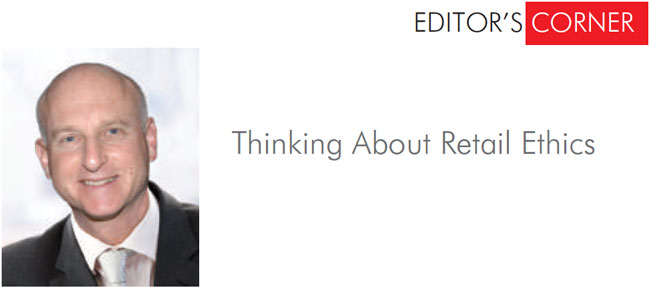
When Furniture World's editorial contributor and bedding expert David Benbow submitted an article on retail ethics for this edition, he chose to present his view in a simple, useful, straightforward manner. As he puts it, “Without going into the weeds about ethical philosophy”.
My slightly more weedy view is that the ethical behavior of retail business tends to lay out on a bell curve type distribution. Positioned as outliers on the forward side of the curve are those who not only keep their promises, but also care about and act to improve
the environment, the dignity of their customers, of their communities and suppliers. On the opposite side of the mean, are those who don’t think much about these details beyond their public relations value.
The majority, however, fall somewhere in the middle ground of doing business which involves navigating a tangle of sometimes conflicting responsibilities to family/shareholders, communities, employees, vendors, customers, the bottom line, and the planet.
Bruce Weinstein, a Forbes Contributor wrote a nice little commentary on ethics based on his reading of a book by Tom L. Beauchamp and James F. Childress titled, "Principles of Biomedical Ethics". Bruce identified the following five ethical principles which can be considered by retailers who are interested In edging closer towards an ethical ideal.
Do No Harm • Make Things Better
Respect Others • Be Fair • Care
I don't see how any retailer can go wrong by keeping
these principles in mind.
Finally, FW is working on a follow-up article on this topic. If you've observed tangled ethics among furnishings retailers, suppliers, employees or consumers, or, if you've struggled on the horns of a furniture related ethical dilemma and feel like sharing, please send me an email, which will be kept in strict confidence.

Russell Bienenstock is Editor-in-Chief of Furniture World Magazine, founded 1870. Comments can be directed to him at editor@furninfo.com.